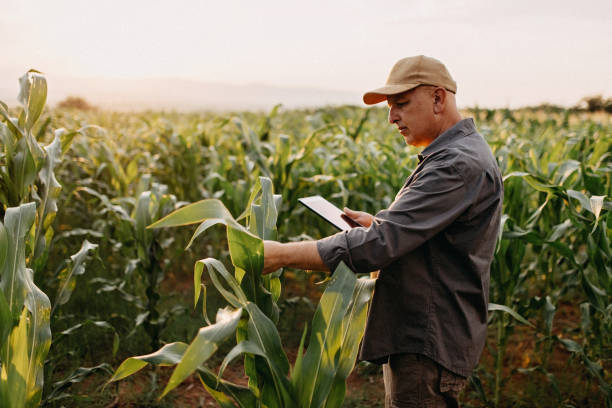Sustainable Agriculture Through Digitization: Revolutionizing Farming for a Greener Future
Introduction to Sustainable Agriculture
In recent years, sustainable agriculture has gained significant attention. As the world strives to find solutions to the environmental challenges posed by traditional farming practices. To address these concerns, the integration of digital technologies and sustainable farming practices has emerged as a game-changer.
Digitization in agriculture not only improves efficiency and productivity but also minimizes the environmental impact. This blog explores how digitization is revolutionizing sustainable agriculture and paving the way for a greener and more sustainable future.

Aspects of Sustainable Agriculture:
Precision Farming:
Digitization has introduced precision farming techniques that enable farmers to optimize resource utilization and reduce waste. Through the use of sensors, GPS technology, and data analytics, farmers can gather real-time information about soil conditions, weather patterns, and crop health. This data empowers farmers to make informed decisions on irrigation, fertilization, and pest management. Resulting in reduced water consumption, minimized chemical use, and improved crop yields.
Smart Irrigation Systems:
Water scarcity is a critical concern in agriculture, and traditional irrigation methods often lead to excessive water usage. Digitization has introduced smart irrigation systems that rely on real-time data and weather forecasts to deliver precise amounts of water to crops. These systems use moisture sensors and automated controllers to determine the optimal irrigation schedule, reducing water wastage and ensuring efficient water usage.
Remote Monitoring and Control:
Digitization allows farmers to remotely monitor and control various aspects of their farming operations. Connected devices and IoT (Internet of Things) technology enable farmers to monitor crop growth, soil moisture, and pest infestations from their smartphones or computers. This remote monitoring capability enables farmers to take timely actions, optimize resource allocation, and prevent crop losses, thus promoting sustainable farming practices.
Data-Driven Decision Making:
The availability of vast amounts of data through digitization has transformed agriculture into a data-driven industry. Farmers can collect and analyze data related to weather patterns, soil conditions, crop health, and market trends. By leveraging data analytics and predictive models, farmers can make well-informed decisions regarding planting, harvesting, and marketing, leading to improved efficiency, reduced costs, and minimized environmental impact.
Supply Chain Optimization:
Digitization has revolutionized the agricultural supply chain, ensuring transparency, traceability, and sustainability. Blockchain technology enables farmers to track and record every step of the supply chain, from seed to table. This enhanced transparency allows consumers to make informed choices and encourages sustainable practices by minimizing waste, reducing food fraud, and promoting fair trade.
Farm Automation and Robotics:
Automation and robotics play a crucial role in digitized agriculture. Automated systems can perform repetitive tasks with precision and efficiency, reducing the need for manual labor and minimizing human errors. Robotic devices, such as drones, can be used for crop monitoring, precision spraying, and even pollination. By embracing automation and robotics, farmers can optimize resource usage, reduce the environmental impact, and increase overall productivity.
Education Sustainable Agriculture and Knowledge Sharing:
Digitization not only benefits individual farmers but also promotes knowledge sharing and collaboration within the agricultural community. Online platforms, webinars, and forums provide opportunities for farmers to learn about the latest sustainable practices, exchange ideas, and access expert advice. This collective learning fosters innovation and encourages the widespread adoption of sustainable farming methods.
Conclusion
The integration of digitization and sustainable agriculture is transforming the way we produce food. Through precision farming, smart irrigation systems, remote monitoring, data-driven decision making, supply chain optimization, farm automation, and knowledge sharing, digitization is enabling farmers to achieve higher yields, reduce resource consumption, and minimize environmental impact. By embracing digitization, we can create a greener and more sustainable future for agriculture. Ensuring food security all while preserving our planet’s precious resources.

Any comments?